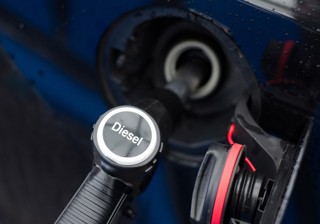The Institute for Fiscal Studies (IFS) says that, with revenue from fuel duties down by £19bn since 2000, the Government should consider road pricing to maintain its tax take.
It also says that company car tax should not be linked to emissions if the Government can set fuel taxes and the VED ‘showroom tax’ appropriately.
Given the availability of an emissions-based showroom tax, the IFS argues that it is hard to see a role for emissions-based company car taxation.
Income tax and NICs should be levied, at the taxpayer’s marginal rate, on the value to the employee of having the use of the car for a year, it says.
That is, they should be applied to the amount it would cost the employee to lease the car for a year – which will depend on the car’s emissions only in so far as the car’s rental price reflects its fuel efficiency (and the tax should reflect the car’s age, for example, in the same way).
The findings are included in the IFS Green Budget. It highlights how, with Prime Minister Boris Johnson said to be pressing for fuel duties to be cut by 2p per litre in the upcoming Budget, the Treasury faces losing £1 billion a year in revenue on top of the £5.5bn lost since 2010-11, arising from the failure to increase rates in line with CPI inflation.
Revenue from fuel duties now stands at £28bn a year, which is 1.3% of national income. Revenue peaked at 2.2% of national income in 1999–2000. Had it remained at that level, the Exchequer would currently be getting an extra £19bn.
In any case, the Government’s commitment to reaching zero net emissions by 2050 means that revenue from fuel duties will completely disappear over the next few decades. This is a huge long-run fiscal challenge for the Government.
The IFS says that the Government needs to design new taxes which can gradually replace fuel duties. These should reflect at least distance driven, and ideally vary according to when and where journeys take place. Those driving in busy places would pay more, but the majority of journeys would be taxed less heavily than at present.
It also says there is an advantage in acting quickly: it will be much harder politically to introduce such taxes only after revenue from fuel duties has fallen much further and many people are driving hybrid or electric cars in the expectation of paying little tax on them.
The findings are included in the IFS Green Budget, funded by the Nuffield Foundation and Citi and pre-released today.
Other key findings include:
- Fuel duties are not regressive as is often claimed.
- Fuel taxes account for more than 10% of the (non-housing) spending of about one household in 20.
- The only justification for retaining the annual vehicle excise duty (VED) on car ownership is if the Government rules out using fuel duties to raise revenue in its place, says the IFS. Similarly, company car tax should not be linked to emissions if the government can set fuel taxes and the VED ‘showroom tax’ appropriately.
- To effectively correct for the social costs of motoring – particularly as we move to more efficient and electric cars – we need to look beyond existing taxes, it says. The ideal approach would be a system of road pricing with charges varying by time and location. Failing that – or, better, as a stepping stone towards it – there is a case for introducing a flat rate tax per mile driven to supplement reduced revenue from fuel duties and help correct for the social costs of driving.
Rebekah Stroud, co-author of the report and a research economist at the IFS, said: “Cuts to fuel duties over the last two decades have contributed towards revenues’ being £19bn a year lower than they would have been.
“Another 2p cut, as reportedly mooted by the Prime Minister, would cost a further £1bn a year.
“The bigger challenge is that revenues are now set to disappear entirely over coming decades as we transition to electric cars.
“The Government should set out its long-term plan for taxing driving, before it finds itself with virtually no revenues from driving and no way to correct for the costs – most importantly congestion – that driving imposes on others.”
The Government announced recently that company car drivers choosing a pure electric vehicle will pay no benefit-in-kind (BIK) tax in 2020/21.
In its long-awaited response to its review of WLTP and vehicle taxes, to which Fleet News was listed as a respondent, HM Treasury binned the previously published BIK rates for 2020/21.
Instead it has created two new BIK tables for company car drivers; a table for those driving a company car registered after April 6, 2020, and one for those driving a company car registered before April 6, 2020.
Ian Johnston, CEO of Engenie, concluded: “If the Government is serious about achieving net zero emissions by 2050, it needs bold policies that create an attractive trading environment for zero emissions vehicles over traditional internal combustion engines.
"Rather than introducing a road pricing scheme that applies to all motorists, it needs to – in the short term at least – consider increasing fuel duty. Disincentivising drivers to switch to EVs risks our Paris Agreement commitments.”























Peter Martin - 04/10/2019 12:22
Road Pricing - NO THANKS. We successfully fought off Road Tolls on the A14 a few years ago. It would be a penalty for anyone not living in London where there is the alternative of public transport. The alternative has not yet been provided.